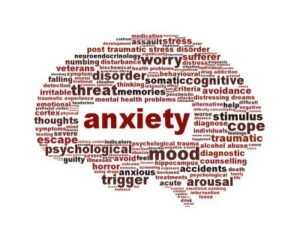When African Americans Grieve
This summer, the nation and the world grieved the loss of George Floyd and other victims of police violence. The sting of racial injustice combined with police brutality continues to cause outrage and incalculable grief among African Americans; a “conscious nightmare” if you are black in America. Grief as a function of ethnicity is not widely researched within the bereavement scientific community; particularly grief experiences of African Americans. However, the grief process for African Americans differs from Eurocentric culture and has distinct factors and features that contribute to their grieving process.
Distinct Factors That Contribute to the African American Grieving Process
There are many factors that contribute to a distinct grief process for African Americans. These include losses to homicides, a diminished lifespan, a history of sociological disadvantages, poverty, racism, oppression, police brutality, civil injustices, incarceration, and drug and alcohol abuse.
The Centers for Disease Control (CDC) data shows the homicide rate among African Americans is eight times higher than that of Caucasians. Thus, African Americans are likely to experience premature loss of a loved one to homicide. They live approximately six to seven years fewer than Caucasians. Moreover, socioeconomic disadvantages persist across multiple generations of African American families. These life-long, and lingering stressors contribute to how African Americans experience grief and is commonly referred to among mental health professionals as complicated or prolonged grief experiences.
Distinctive Features of African American Grief
There are inherent strengths and distinct features that show how grief differs in the African American culture in contrast to the Eurocentric culture. Continuing bonds, changes in self-identity, kinship bonds, professional and social support, and religious coping are a few of these features.
- Continuing Bonds: African Americans are likely to maintain ongoing spiritual connections with deceased loved ones, mark birth and death occasions, connect to loved ones through dreams or sense their loved one’s presence or have conversations with them, and make frequent visits to the cemetery.
- Change in Self-Identity: Likewise, in this close-knit culture, there is an interconnectedness within “the village” that affects one’s sense of self in the African American community more so than in other groups.
- Kinship: A loss to an extended family member or close friend, in the African American community, is just as significant as a loss in one’s nuclear family. It profoundly affects “the village” regardless of formal kinship.
- Professional/post social support: African Americans are also less likely to use professional therapy services and embody stoicism to a fault. Researchers suggests African Americans believe that sorrow and suffering are to be expected and difficult circumstances tolerated rather than seek help to address the situation. Family support helps, unless members are emotionally preoccupied and have limited capacity to help others through loss.
- Religious Coping: African Americans that do seek help, turn to religious coping and rely on faith, spirituality, and prayer with some seeking informal counseling with church pastors.
When African Americans Grieve
When it comes to grief and African Americans, there is no one-size-fits all approach. Important cultural differences and grief variations that are in relationship to – and as a result of – external environmental, structural, and social factors must be considered by mental health professionals in order to understand, and not pathologize, the African American grief experience. While some members in “the village” may stigmatize counseling and therapy services, getting help for grief, loss, and trauma can be cathartic and restorative.
References:
Laurie, A., & Neimeyer, R. A. (2008). African Americans in bereavement: Grief as a function of ethnicity. OMEGA – Journal of Death and Dying, 57(2), 173-193.
Boulware, D. L., & Bui, N. H. (2015). Bereaved African American adults: The role of social support, religious coping, and continuing bonds. Journal of Loss and Trauma, 21(3), 192-202.
Rosenblatt, P. C. (2017). Researching grief: Cultural, relational, and individual possibilities. Journal of Loss and Trauma, 22(8), 617-630.
Jarosz, B. (2020, April 16). Disadvantage for Black families compounded by economic circumstances of Kin – Population reference bureau. Population Reference Bureau – Inform, Empower, Advance. https://www.prb.org/disadvantage-for-black-families-compounded-by-economic-circumstances-of-kin/#









